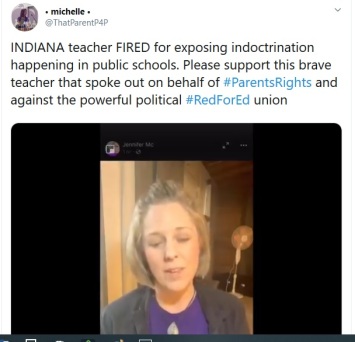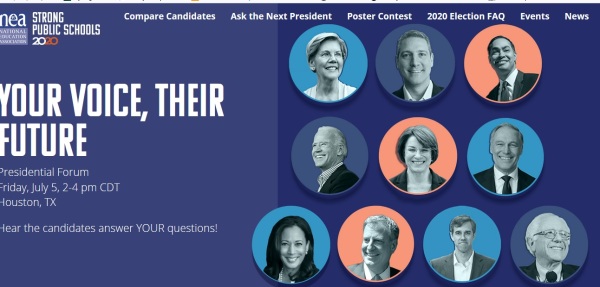Me, I don’t mind if conservatives lose this battle. But I can’t help but think that they’d rather win. If so, they should avoid the tactics of Trump and #PurpleforParents and focus instead on what has always worked in the past.

A losing strategy in action…
Here’s what we know: In the face of sweeping victories for #RedforEd protests, conservatives have turned to accusations that teachers are just dupes in a grand subversive scheme to undermine core American values. You may have seen a recent video making the rounds, in which Jennifer warns of
RedforEd, the NEA, and the radical agenda behind it.
These warnings have been circulating on the Right for a while now. As Breitbart noted last year, #RedforEd has become a front for “social justice demagogues” who don’t care about parents’ “values and attitudes.”
In the past, conservatives have had great success by painting teachers’ unions and other educational experts as subversive, anti-American organizations. In the 1970s, for example, conservative Alice Moore won big when she attacked the “Educational Bureaucracy” and fought for
Our right as parents to rear our children according to our own moral, ethical and religious beliefs without interference.
Will the same strategy work for #PurpleforParents? Can Jennifer and her allies convince America that #RedforEd is just a scheme? A racket to fool parents into indoctrinating their children with anti-American values?
 I don’t think so. Historically, the fight in school politics has always been for the middle. Whoever can prove she is fighting for better schools will win. Alice Moore won in West Virginia in 1975 by fighting for better textbooks for students. She won by convincing enough neighbors that she represented better schools, the “best academic education possible.”
I don’t think so. Historically, the fight in school politics has always been for the middle. Whoever can prove she is fighting for better schools will win. Alice Moore won in West Virginia in 1975 by fighting for better textbooks for students. She won by convincing enough neighbors that she represented better schools, the “best academic education possible.”
So far, #RedforEd has been able to maintain its position as the voice of high-quality public education. Protests have kept their focus on improving schools for students. In St. Paul, for example, teacher protests have demanded
class size limits, paid teacher visits to their students’ homes, a new approach to school climate, and the hiring of more counselors, social workers, nurses and psychologists.
Teachers are making similar demands all over North America, from California to Canada.
Will it work? Who knows. But #RedforEd benefited from an unforced error by President Trump. When Trump excoriated “failing government schools,” he unwittingly left the field in the hands of protesting teachers. As long as #RedforEd is seen as a protest in favor of good schools for students, red-baiting conservatives will have no luck.
Thanks to KD for the tip!




















